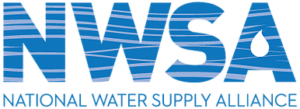2023 Washington DC Roundtable — Water Policy Summit
Water Policy Summit — April 5th, 8:00am – 12:00pm
SPEAKER BIOS
Participants:
-
- American Water Works Association (AWWA) – Tracy Meehan
- Association of Fish and Wildlife Agencies (AFWA) – Jason Olive
- Association of Metropolitan Water Agencies (AMWA) – Erica Brown
- Consortium of Universities for the Advancement of Hydrologic Science, Inc. (CUAHSI) – Jordan Read
- National Association of Flood and Stormwater Management Agencies (NAFSMA) – Susan Gilson
- National Waterways Conference (NWC) – Julie Ufner
- Western States Water Council (WSWC) – Michelle Bushman
Policy Summit Theme: Climate resilience
About: Increasing disaster costs and impacts – such as those due to drought, floods, and extreme weather events — pose a growing threat to American lives, livelihoods, infrastructure, supply chains, and military readiness. Becoming a nation that is adaptive to climate change requires elevating resilience as a national priority.
Format: We will bring together a range of perspectives to discuss how the water resources community contributes to climate resilience. Each panel will have 5-7 prompt questions related to the discussion theme.
8:00am: Panel 1 – Water Data & Science
PANELISTS: CUAHSI, WSWC, AFWA
Goals: 1) Discuss how water data and science contribute to our ability to understand, prepare for, and mitigate climate threats. 2) Identify opportunities for improved coordination between local governments, states, regional and interstate bodies, and the federal government.
SUPPLEMENTAL READING:
9:15am: Panel 2 – Water resources planning & pre-disaster mitigation
PANELISTS: AMWA, NAFSMA
Goal: Discuss the role of water resources planning for pre-disaster mitigation, such as investments in preparedness programs and opportunities for coordinated funding at state and federal levels.
10:30am: Panel 3 – Infrastructure
PANELISTS: NWC, AWWA
Goal: Evaluate the progress of local, state and regional investments in our nation’s water infrastructure, including funding through IRA and IIJA programs. What is working, and what needs to be improved?
SUPPLEMENTAL READING:


